Filter by
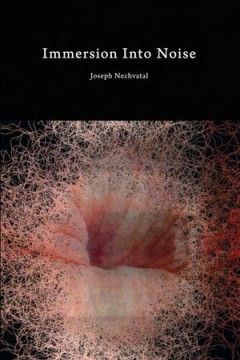
Immersion Into Noise
Joseph Nechvatal's Immersion Into Noise investigates multiple aspects of cultural noise by applying our audio understanding of noise to the visual, architectual and cognative domains. The author takes the reader through phenomenal aspects of the art of noise into algorithmic and network contexts, beginning in the Abside of the Grotte de Lascaux
- Edition
- -
- ISBN/ISSN
- 9781607852414
- Collation
- -
- Series Title
- -
- Call Number
- -
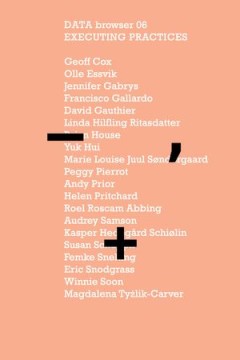
Executing Practices
This collection brings together artists, curators, programmers, theorists and heavy internet browsers, all of whose practices make a critical intervention into the broad concept of execution. It draws attention to their political strategies, asking: who and what is involved with those practices, and for whom or what are these practices performed, and how? From the contestable politics of emoji …
- Edition
- -
- ISBN/ISSN
- 9781785420566
- Collation
- -
- Series Title
- -
- Call Number
- -

Digital Light
Light symbolises the highest good, it enables all visual art, and today it lies at the heart of billion-dollar industries. The control of light forms the foundation of contemporary vision. Digital Light brings together artists, curators, technologists and media archaeologists to study the historical evolution of digital light-based technologies. Digital Light provides a critical account of the …
- Edition
- -
- ISBN/ISSN
- 9781785420009
- Collation
- -
- Series Title
- -
- Call Number
- -
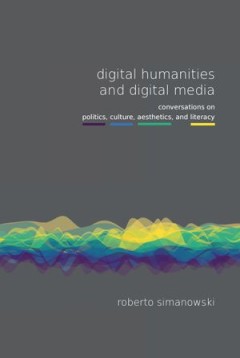
Digital Humanities and Digital Media Conversations On Politics, Culture, Aes…
There is no doubt that we live in exciting times: Ours is the age of many ‘silent revolutions’ triggered by startups and research labs of big IT companies; revolutions that quietly and profoundly alter the world we live in. Another ten or five years, and self-tracking will be as normal and inevitable as having a Facebook account or a mobile phone. Our bodies, hooked to wearable devices sitt…
- Edition
- -
- ISBN/ISSN
- 9781785420306
- Collation
- -
- Series Title
- -
- Call Number
- -

Environment, Archaeology and Landscape Papers in honour of Professor Martin …
Environment, Archaeology and Landscape is a collection of papers dedicated to Martin Bell on his retirement as Professor of Archaeological Science at the University of Reading. Three themes outline how wetland and inland environments can be related and investigated using multi-method approaches. 'People and the Sea: Coastal and Intertidal Archaeology' explores the challenges faced by humans in …
- Edition
- -
- ISBN/ISSN
- 9781803270852
- Collation
- -
- Series Title
- -
- Call Number
- -
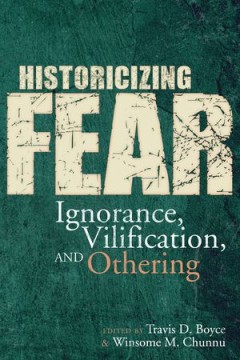
Historicizing Fear: Ignorance, Vilification, and Othering
Historicizing Fear is a historical interrogation of the use of fear as a tool to vilify and persecute groups and individuals from a global perspective, offering an unflinching look at racism, fearful framing, oppression, and marginalization across human history. The book examines fear and Othering from a historical context, providing a better understanding of how power and oppression are used i…
- Edition
- -
- ISBN/ISSN
- 9781646420025
- Collation
- -
- Series Title
- -
- Call Number
- 300

Contemporary Perspectives on Ageism
Older adults outnumbering children; Gerontology/geriatrics; Aging world population; The study of ageism; Ageism is the most prevalent form of discrimination
- Edition
- Vol. 19
- ISBN/ISSN
- 9783319738192
- Collation
- -
- Series Title
- -
- Call Number
- 152.82 AYA c
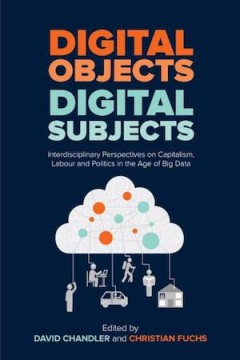
Digital Objects, Digital Subjects: Interdisciplinary Perspectives on Capitali…
This book explores activism, research and critique in the age of digital subjects and objects and Big Data capitalism after a digital turn said to have radically transformed our political futures. Optimists assert that the ‘digital' promises: new forms of community and ways of knowing and sensing, innovation, participatory culture, networked activism, and distributed democracy. Pessimists…
- Edition
- -
- ISBN/ISSN
- 9781912656202
- Collation
- -
- Series Title
- -
- Call Number
- 300
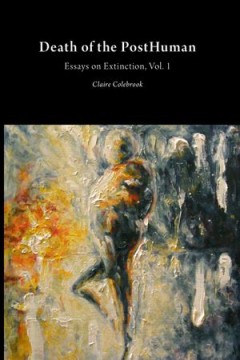
Death of the PostHuman
Death of the PostHuman undertakes a series of critical encounters with the legacy of what had come to be known as 'theory,' and its contemporary supposedly post-human aftermath. There can be no redemptive post-human future in which the myopia and anthropocentrism of the species finds an exit and manages to emerge with ecology and life. At the same time, what has come to be known as the human - …
- Edition
- -
- ISBN/ISSN
- 9781607852995
- Collation
- -
- Series Title
- -
- Call Number
- -
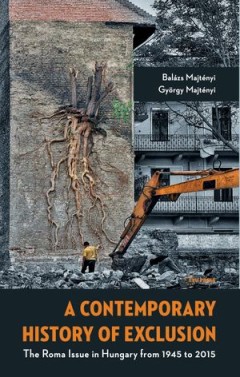
A Contemporary History of Exclusion; The Roma Issue in Hungary from 1945 to 2015
This book illustrates the history of the Gypsy/Roma issue in the wider context of Hungarian national history, relying on state policy documents.
- Edition
- -
- ISBN/ISSN
- 9789633861226
- Collation
- -
- Series Title
- -
- Call Number
- 305 MAJ c
 Computer Science, Information & General Works
Computer Science, Information & General Works  Philosophy & Psychology
Philosophy & Psychology  Religion
Religion  Social Sciences
Social Sciences  Language
Language  Pure Science
Pure Science  Applied Sciences
Applied Sciences  Art & Recreation
Art & Recreation  Literature
Literature  History & Geography
History & Geography